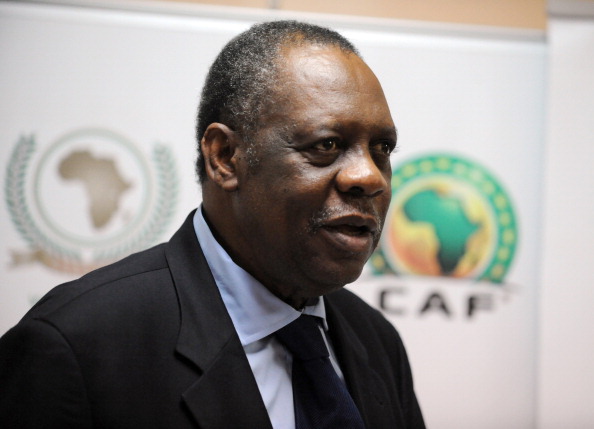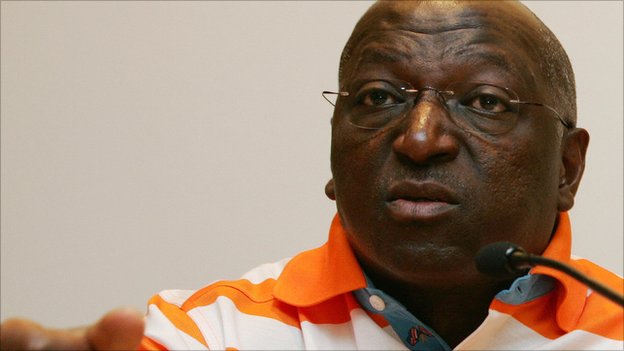By Andrew Warshaw
October 23 – Jacques Anouma, one of Africa’s leading football administrators, has poured further scorn on the continent’s recent rule change banning anyone from outside the inner sanctum from challenging Issa Hayatou for the Presidency of the Confederation of African Football (CAF).
The contentious move was adopted at CAF’s recent annual congress and effectively puts paid to the aspirations of figures such as Anouma, the former President of the Ivory Coast Football Federation, and South Africa’s FIFA 2010 World Cup organiser Danny Jordaan from unseating Hayatou.
The obvious knock-on effect is that Hayatou (pictured below), who has run African football for 35 years but has been tarnished by allegations of corruption, will be re-elected unopposed next year.
In an interview with the website footballisafrica.com, Anouma said he was “very surprised” the amendment to the statutes was adopted saying it was totally undemocratic to allow only Executive Committee members to challenge Hayatou.
“The first victims of the amendment would be themselves, the federation Presidents, as they can no longer aspire to become President of CAF,” Anouma said.
“In the 21st century, such an undemocratic act should not take place.
“I still do not understand how we could have passed an amendment that is clearly anti-democratic.
“The Executive Committee does not have the right to make themselves the only people that can contest the Presidency of CAF.
“But the pressure people were under and the other things that I have heard happened, may be responsible for this.”

Anouma did not mince his words in terms of his feelings towards the present incumbent.
“You expect people to have courage, to stand for what is right and not to be frightened of the almighty president, Mr Hayatou…” he said.
Anouma is one of Africa’s representatives on FIFA’s Executive Committee but is only an ex-officio member of CAF’s top brass.
He hinted there was no longer any trust within the CAF hierarchy and said the Executive Committee meeting where the amendment was first adopted was an uncomfortable place to be.
“When my colleagues spoke to me, in private, they said they are against the proposals, but when it is time to vote, they decide to do another thing,” he explained.
“The ambience was not one that I would want to work in, in the future.
“There was too much secrecy, too much hypocrisy.
“It’s really wrong for African football, things need to change.”
Contact the writer of this story at andrew.warshaw@insideworldfootball.biz

